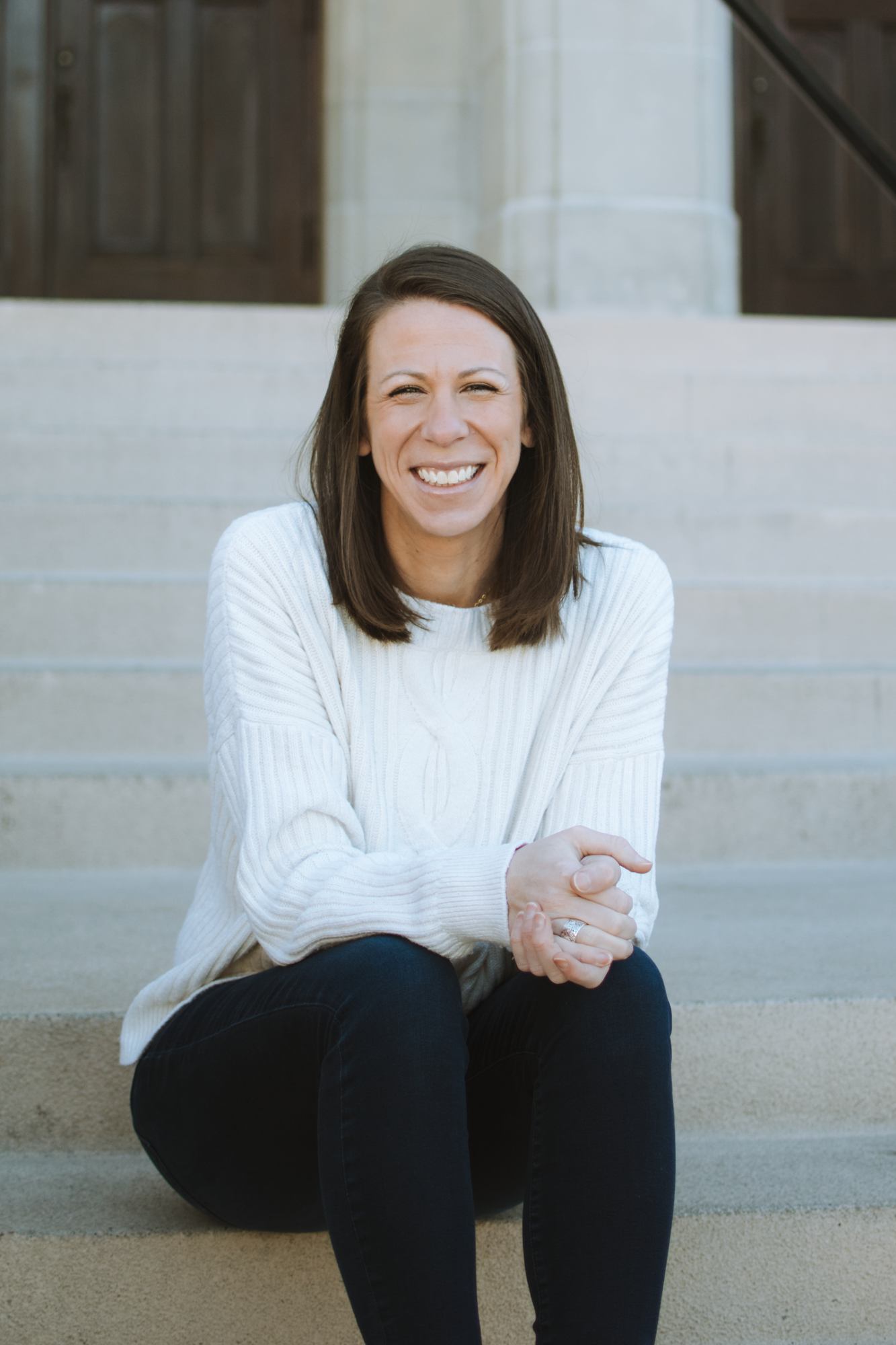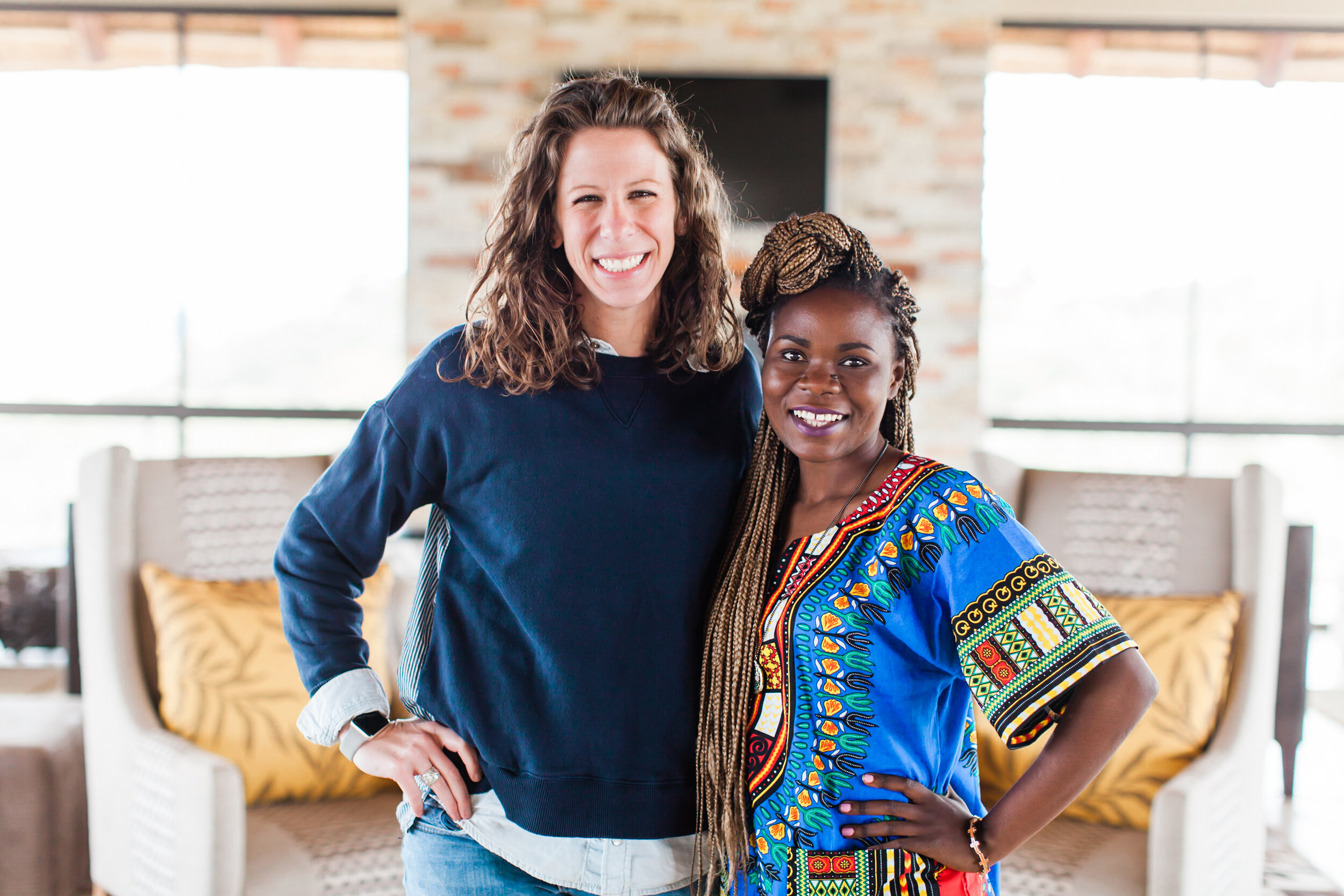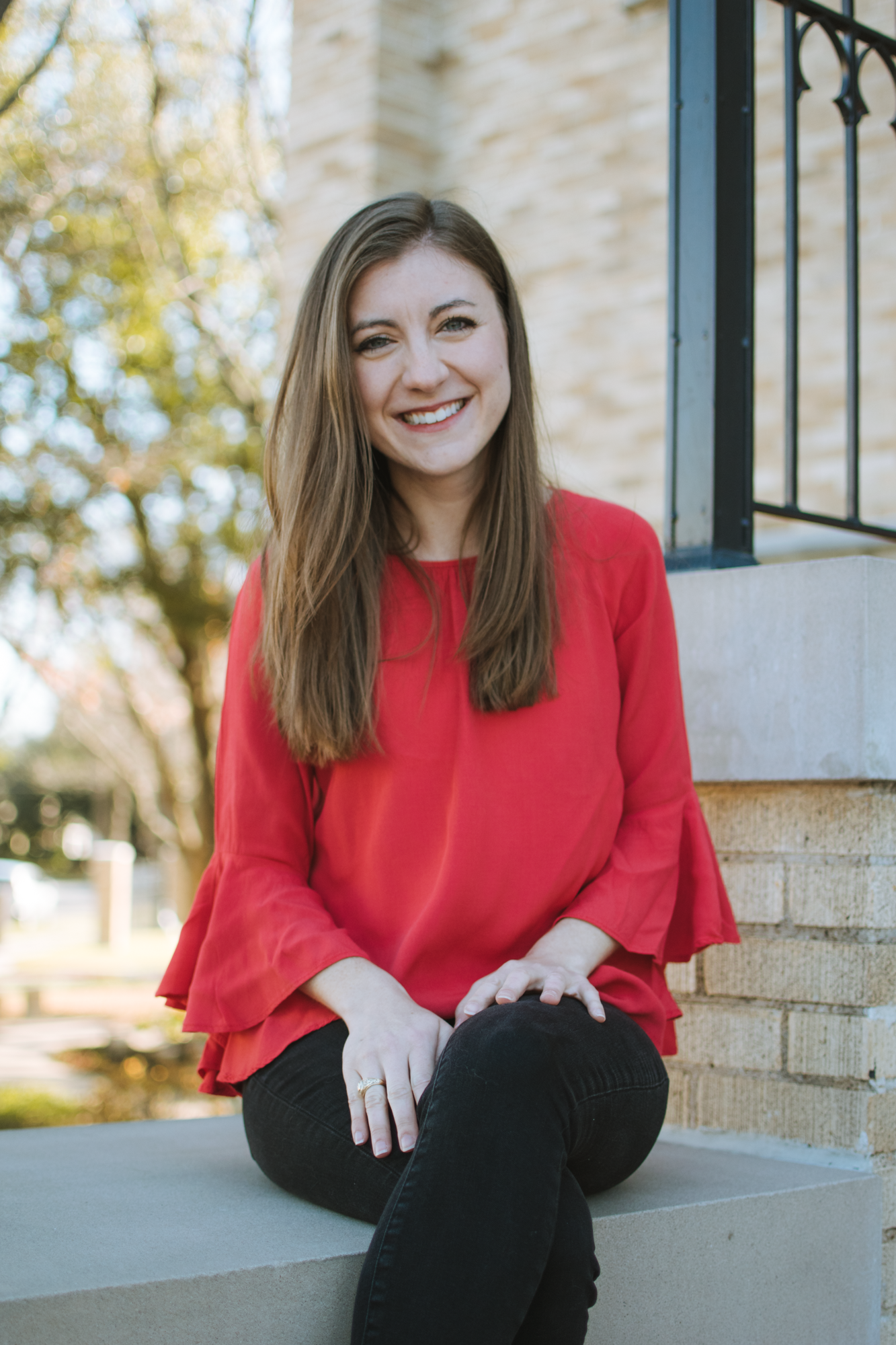Story by Liz Navarro. Photos by Katie Kelton.
Zambia is a beautiful country, home to the spectacular Victoria Falls, one of the Seven Natural Wonders of the World. It is rated nearly as safe as Great Britain, and brimming with a diverse, contemporary blend of cultures. Zambia is also very poor, with one of the highest populations of orphans and vulnerable children in the world.

Amanda Switzer
Amanda Switzer is a former AP US History teacher and girls basketball coach at Highland Park High School. She first visited Lusaka, Zambia, from Dallas when her Highland Park students invited her to join them on a service trip. They raised the money to go, and that summer worked with a nonprofit group to operate an educational summer camp for orphans and vulnerable children in Lusaka.
Zambia and the children there had a magnetic pull on Amanda. She returned each summer for several years when she realized she wanted to stay.
“The nonprofit was launching a secondary school for the children there,” said Amanda. “I was at a point where I decided I wanted to stay longer than just for summer camp. I loved my job at Highland Park, I loved my life in Dallas, but it was a really clear thing. I emailed my principal and resigned. I stayed that summer until August, came home to Dallas, sold all of my stuff, and moved to Zambia.” She helped the nonprofit launch their secondary school program that gave vulnerable children access to education. It was there that she met her colleague Elizabeth Ngalwile, a Zambian local and advocate.
Despite the fact that the nonprofit where they worked supported over 12,000 children, Elizabeth and Amanda noticed one group of children who seemed to be neglected: girls who had become pregnant as the result of being abused. In Zambia when a girl became pregnant, she was asked to leave school. Even with high rates of teen and adolescent pregnancy, there were virtually no resources or care facilities for this vulnerable group of children when they left the education system.
“We’re supposed to be caring the most for vulnerable kids—these are the most vulnerable kids. There were times I would sign 30 discharges a day for girls under sixth grade for pregnancy,” Amanda said.
One day, Elizabeth came into Amanda’s office with the story of an 12-year-old girl who had been raped by her uncle and was now pregnant. The girl had been kicked out of her house with nowhere to go—she was an orphan, and her uncle had been her caretaker. “I’m done. I’m not discharging another girl like this,” said Elizabeth. Amanda agreed. They tried to change the policies, both in the government and the nonprofit, but were unable to gain momentum. (Amanda noted that some policies have since been changed.) They tried to find a nonprofit organization who could support the girl, but there wasn’t one.
“There wasn’t a facility in Zambia who would admit a pregnant child,” Amanda explained. She and Elizabeth realized the urgent need to empower and provide resources to these girls who had no where else to go.
The result is The Kukhoma Project.
In the months that followed, Amanda and Elizabeth carried out their vision to create a house that would serve as a refuge and place of restoration for girls who had become pregnant because of sexual abuse. They planned to provide a safe place for the girls during their pregnancy and after, teach them a work skill, equip them to care for their children, continue their education, support and empower their family members, and prepare them for the best possible future.
Amanda and Elizabeth. Photo courtesy of Kukhoma Project.
In March of 2019, they officially opened a house—a bright, peaceful home on an open plot of land just outside the city of Lusaka. By May six girls had moved in, and in a whirlwind of just 10 days, gave birth to four babies. Now all six girls have given birth and there are three baby girls and three baby boys in the house. The mothers and babies are set to live there for two more years.
All of the girls who live in the house are younger than 16 and came from situations of rape, abuse, or other threats to life. As soon as they moved in, the Kukhoma project founders, staff, and team began to equip the girls and their babies to re-integrate into the community.
“The first three months was really getting used to the babies and the babies’ schedules,” Amanda explained. After they got into the rhythm of living in a house with six babies, the girls were able to start literacy lessons, phonics (English is the official language of Zambia), a curriculum called The First 1,000 Days of Child Development, and group and individual counseling sessions.
The Kukhoma Project partners with other local groups to teach the girls trades, equipping them with skills like sewing, tailoring, and agriculture. The founders chose trades that had the most potential to offer employment for the girls when they graduate from the house. “We chose sewing and tailoring because everyone has to have a school uniform in Lusaka. It can be sourced from anywhere as long as it fits the requirements. And, Zambia doesn’t produce enough food for the population of the country. The government offers subsidies for urban farming,” Amanda explained. “The girls can walk across the street to take a course on gardening.”
Depending on how far along their girls were in their education before becoming pregnant, many will soon be able to return to school in the mornings. “Some of our girls have made it to grade ten. Less than five percent of the whole country makes it to grade twelve,” shared Mariah Glasener, Director of Development and Operations for the Kukhoma Project. “In Zambia, it’s really hard to get a job even if you have a college education. There’s a high unemployment rate. We want to give the girls the best possible chance, and we try to determine which path will give them the most stability in the future.”
Mariah Glasener
Mariah is another Dallas local who, like Amanda, first experienced Zambia on a trip to serve children at a summer camp in 2009. “I don’t know what it was about that trip, but I knew I just had to keep coming back,” Mariah said. “I knew that it wouldn’t be the last year I was in Zambia. I went every summer throughout college, and I kept wanting to be there longer.”
When Mariah graduated from A&M with an elementary teaching degree, she was able to return to Zambia full time and work for the same nonprofit organization as Amanda. She’s now one of Kukhoma’s original staff and board members, and recently came back to Dallas to continue her role as Director of Development and Operations.
During her years in Zambia, Mariah developed a strong understanding of the culture and education system. She’s an integral part of The Kukhoma Project and is close to the girls in the house, so much so that one of the six babies is named Mariah. The organization operates very much like a family, supporting one another even across continents.
Of course, the girls in the house won’t stay there forever. That’s why The Kukhoma Project has a programmatic focus on working with local family members, those who will be their caretakers and support network when they graduate. “We want to reintegrate the girls into a safe, economically-empowered, loving environment,” Amanda shared.
The Kukhoma Project offers counseling and education services to family members to ensure the girls are supported when they leave the house. Since the girls are still children, they legally cannot be re-integrated back into the community unless they have somewhere safe to go.
The Kukhoma Project is still in its earliest phase, but Amanda, Elizabeth, Mariah, and the team have big dreams for the future. They plan to take in one to two more girls this year to bring the house to its capacity, and they continue to equip their first cohort of girls to graduate. Most importantly, the six girls and their babies are thriving.
“Kukhoma” is roughly translated as “to hope for.” In a bright house on the outskirts of Lusaka, Zambia, hope is abundant.
If you know someone who is Doing Good in Dallas, we’d love to hear about it! Share their story with us.


